
Trade restraint: The unexpected "miracle" that helps the global economy avoid recession
In its recent World Economic Outlook report, the International Monetary Fund (IMF) surprised everyone by slightly raising its global growth forecasts. The optimism stems not only from a better-than-expected recovery in the US economy but also from a less-noticed foreign policy factor: restraint in retaliatory tariffs among major trading partners.
IMF Managing Director Kristalina Georgieva has publicly praised major economies for not launching strong countermeasures to the initial US tariffs. “The fact that countries refrained from large-scale tariff responses has contributed positively to keeping global trade flowing, avoiding serious supply chain disruptions and a crisis of confidence,” Ms. Georgieva said.
According to the IMF, this “trade moderation” has helped businesses and markets absorb tariff shocks more easily, maintaining relative stability and supporting global growth. This demonstrates that, despite persistent geopolitical and trade tensions, the choice by major countries – especially China – not to retaliate has minimized economic damage. Avoiding a full-blown tariff tit-for-tat spiral has kept supply chains flexible, prevented widespread price increases and thereby curbed global inflationary pressures.
The strong recovery of the US economy after the pandemic, combined with a moderate trend in trade policy, has created an important “buffer” for emerging and developing economies. Stable consumer demand in the US continues to be the main driver of global exports, reinforcing expectations of more sustainable growth. Thanks to these factors, the IMF – although still cautious – has revised up its forecast, bringing a ray of hope in the context of many uncertainties in the world.
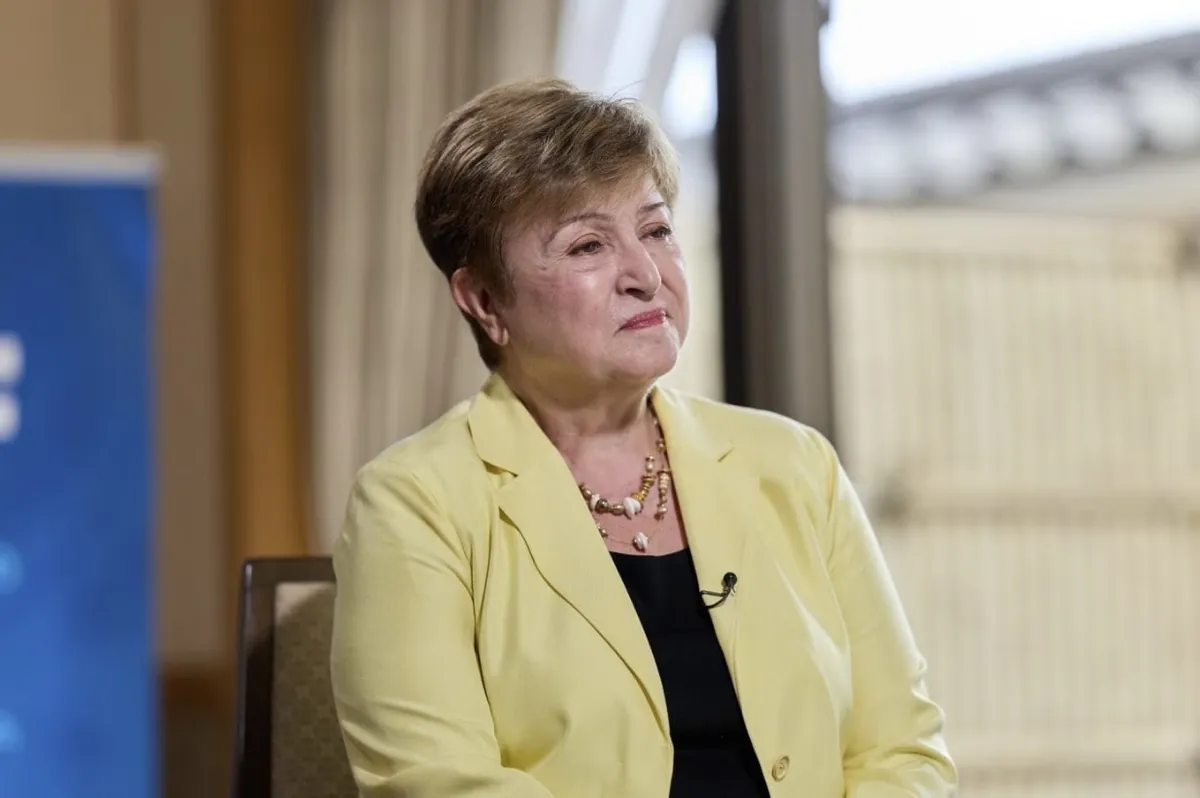
IMF's Kristalina Georgieva said the restraint of trading partners, especially China, in retaliating against US tariffs was an unexpected factor helping the global economy recover and raising growth forecasts.
Despite the bright spots in the IMF's forecast, the global economy still faces two major risks that could shake this delicate balance.
The “information blackout” emerged as the US government shutdown over the budget impasse forced a series of statistical agencies to cease operations. This disrupted the release of key economic data – from the consumer price index (CPI), labor market, to housing data – leaving investors and central banks in a data vacuum.
Without up-to-date information, monetary policy decisions are forced to rely on outdated data or unofficial indicators, increasing the risk of bias. Federal Reserve Chairman Jerome Powell has stressed that any rate moves must be based on “the actual evolution of the economic outlook” – but the “lack of data light” has left the Fed navigating in a state of “sailing in the fog”.
As JPMorgan Chase’s chief US economist, Michael Feroli, notes: “The lack of new inflation data makes it difficult for the Fed to determine exactly how much price containment policy is needed.” This lack of data transparency is not only a concern domestically, but also has spillover effects on economies that rely heavily on export demand to the US.
US-China trade war
The optimism from the IMF report is still overshadowed by the specter of a new trade war between the US and China. In the context of escalating politics, the risk of Washington imposing tariffs of up to 100% on Chinese goods is making investors worry that a new wave of retaliation could upset the balance that the IMF has just recorded.
If that scenario plays out—and Beijing chooses to respond in kind—the consequences could be far more severe than in previous rounds. New tariffs would push up prices for consumer goods and raw materials, adding to inflationary pressures and forcing central banks to tighten monetary policy, raising the risk of recession and disruption to global supply chains.
The IMF warned that “uncertainty about trade policy” remains a major risk to growth. Despite the slight upward revision of the forecast, the global outlook remains low by historical standards and highly vulnerable to political shocks. In other words, the world economy is currently walking a tightrope between a technical recovery and trade restraint on one side and the potential risks from lack of data and rising geopolitical tensions on the other.
Source: https://vtv.vn/tong-giam-doc-imf-viec-khong-tra-dua-thue-quan-se-ho-tro-tang-truong-toan-cau-100251015142158644.htm


![[Photo] Immerse yourself in the colorful musical world of “Secret Garden Live in Vietnam”](https://vphoto.vietnam.vn/thumb/1200x675/vietnam/resource/IMAGE/2025/10/18/1760805978427_ndo_br_thiet-ke-chua-co-ten-41-png.webp)


![[Photo] Closing ceremony of the 18th Congress of Hanoi Party Committee](https://vphoto.vietnam.vn/thumb/1200x675/vietnam/resource/IMAGE/2025/10/17/1760704850107_ndo_br_1-jpg.webp)
![[Photo] General Secretary To Lam attends the 95th Anniversary of the Party Central Office's Traditional Day](https://vphoto.vietnam.vn/thumb/1200x675/vietnam/resource/IMAGE/2025/10/18/1760784671836_a1-bnd-4476-1940-jpg.webp)
![[Photo] Collecting waste, sowing green seeds](https://vphoto.vietnam.vn/thumb/1200x675/vietnam/resource/IMAGE/2025/10/18/1760786475497_ndo_br_1-jpg.webp)


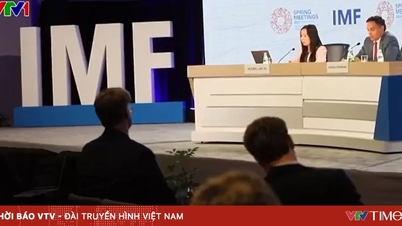


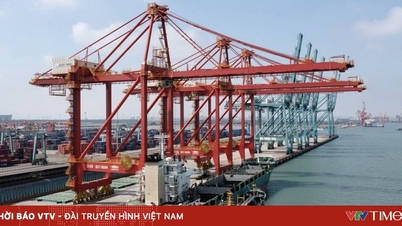



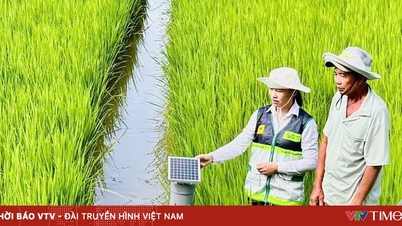









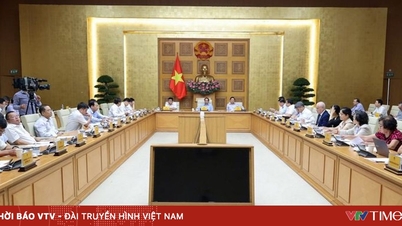

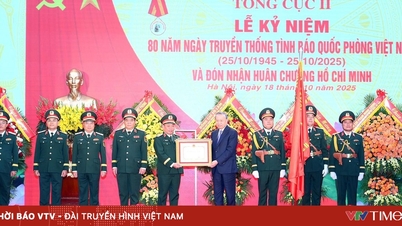
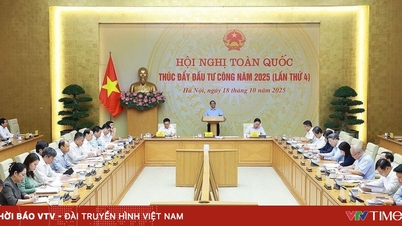
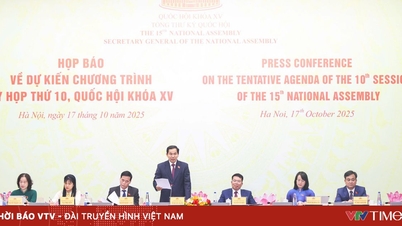



































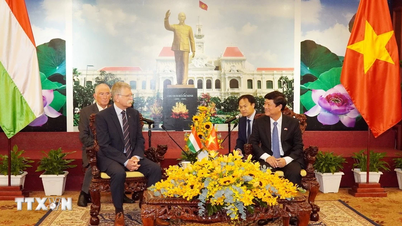

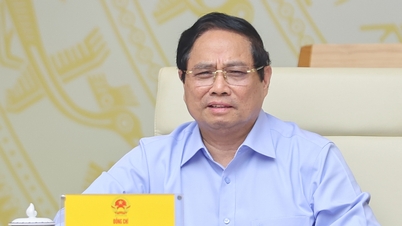
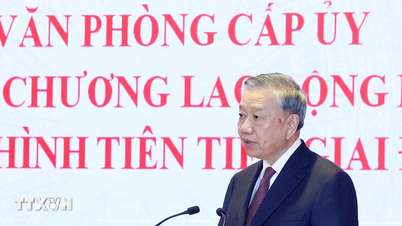
































Comment (0)